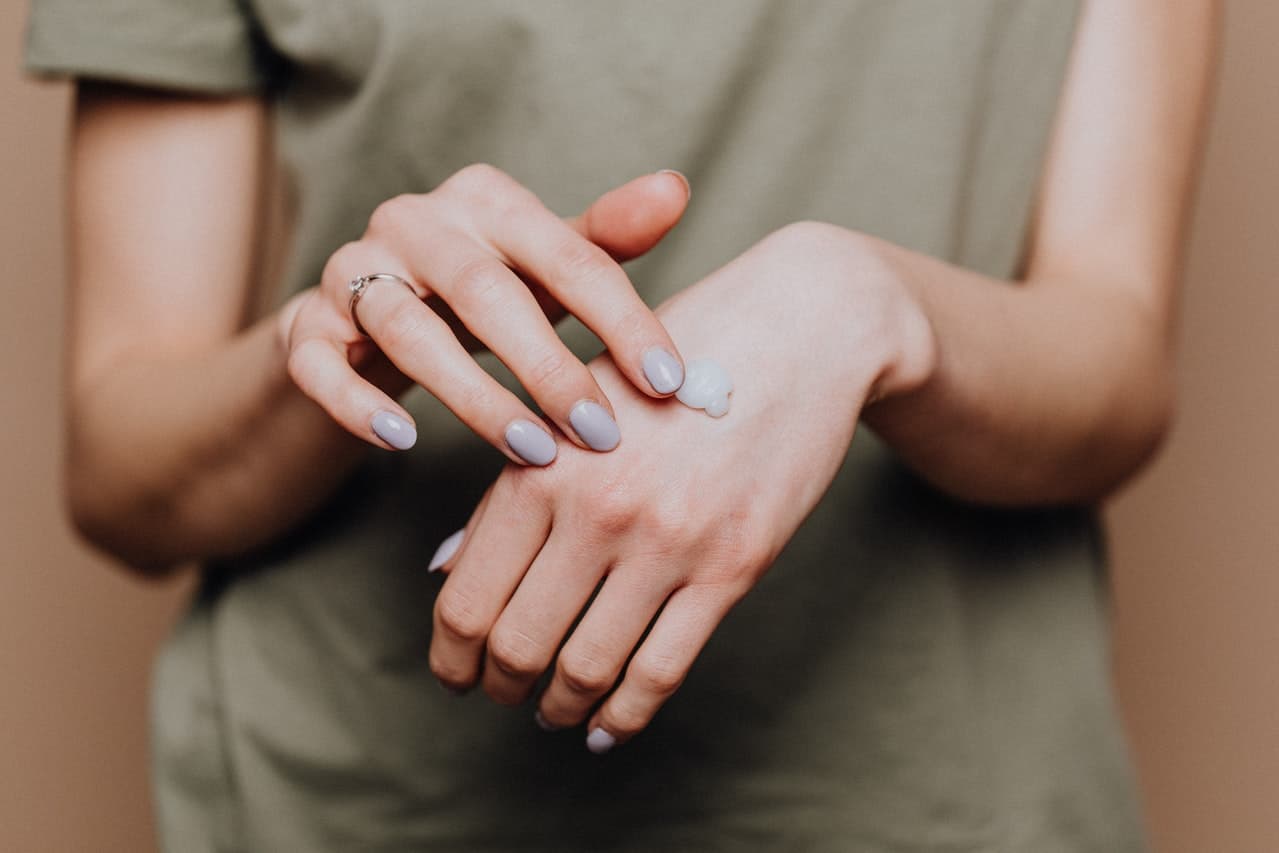When you have dry skin, it is often itchy and flaky.
Dry skin affects individuals of every age, but you may notice it more as you get older, as your skin gets thinner and more prone to drying out quickly.
Weather conditions, certain skin diseases, dehydration, and nutritional deficiencies can also cause dryness.
Here are five steps you can take to soothe dry skin.
1. Stop taking long, hot showers
Frequent hot showers can strip your skin of its natural oil barrier.
You need this oil barrier to trap the moisture in and keep your skin healthy.
Instead, take short, warm showers that last no longer than five to 10 minutes.
Stay away from scrubbing brushes, washcloths, and bath sponges to avoid damaging dry skin.
If you don’t want to give up using them, try to use a very light touch.
Pat the skin when using a towel – rather than rubbing it.
If you find your skin is dry, at home IV fluids can help to hydrate your entire body.
Drip Hydration, The IV Doc and Mobile IV Medics offer a beauty IV drip that supports collagen and quenches tired skin.
A licensed nurse will administer the drip in the comfort of your home.
The Beauty Drip contains B-complex vitamins, vitamin B12, vitamin C, biotin and glutathione to detoxify your body and hydrate your skin.
2. Cleanse Gently
You want to cleanse away any dirt, oil, and makeup without stripping good oils from your skin.
Some skincare products are too harsh for dry, sensitive skin, such as products with anti-bacterial additives.
Steer clear of perfumed soaps, products containing alcohol and deodorant soaps that can strip away natural oils.
You need to find a gentle, fragrance-free cleanser.
A cleanser that contains ceramides can be helpful.
These fatty molecules make up the skin’s outer barrier and help to keep moisture in.
Look for labels that state products are for use on dry skin. When cleansing your face, do it quickly, gently, and thoroughly using your fingertips.
3. Don’t be afraid of toners
Just because you have dry skin does not mean you should skip using a toner.
You just have to be careful about which one you use. Toners can dry out the skin, especially those containing alcohol.
Look for an alcohol-free toner that contains soothing and hydrating ingredients.
Many toners on the market today help to restore the skin’s natural acidic state and add hydration that allows moisturizers to penetrate better.
Hydrating ingredients to look for in toners include rosewater, aloe, and glycerin.
They not only add moisture back but balance skin tone.
Apply toner with a soft cotton pad or use a misting bottle to spritz it on your skin.

4. Moisturize regularly
The simplest moisturizing ingredients can help to treat dry skin.
Ointments and creams are less irritating to the skin than lotions.
Look for those that contain ingredients such as:
- Jojoba oil
- Shea butter
- Lanolin
- Hyaluronic acid
- Ceramides
- Mineral oil
- Lauric acid
- Glycerin
Humectants like glycerin, ceramides, and hyaluronic acid help to attract moisture.
Moisturizing oils like mineral oil and lanolin help to seal that moisture within the skin.
Emollients like lauric acids fill spaces between skin cells and make skin look smoother.
Whichever moisturizing products you choose to use, it is important to follow a consistent routine.
It is best to use them after showering while the skin is still damp to seal in the moisture.
5. Cover up
Sun damage is one of the main causes of dry skin and wrinkles.
It is important to wear an SPF 30 sunscreen all year round to help prevent aging and hyperpigmentation.
Choosing a broad spectrum sunscreen that protects against UVA and UVB radiation will help to protect you against getting skin cancer.
Wearing a lip balm with SPF is also advisable.
Be extra careful around water, which reflects the sun’s rays and increases your chances of getting sunburn.
Try to limit the amount of time you’re out in the sun between 10.00 am and 4.00 pm when the sun’s rays are most intense.
Be more cautious if you’re taking any medications that may make you more sensitive to the sun.
If possible, try to wear clothes made with sun-protective materials. Wear sunglasses and a protective hat that shades your face, neck, and ears.







